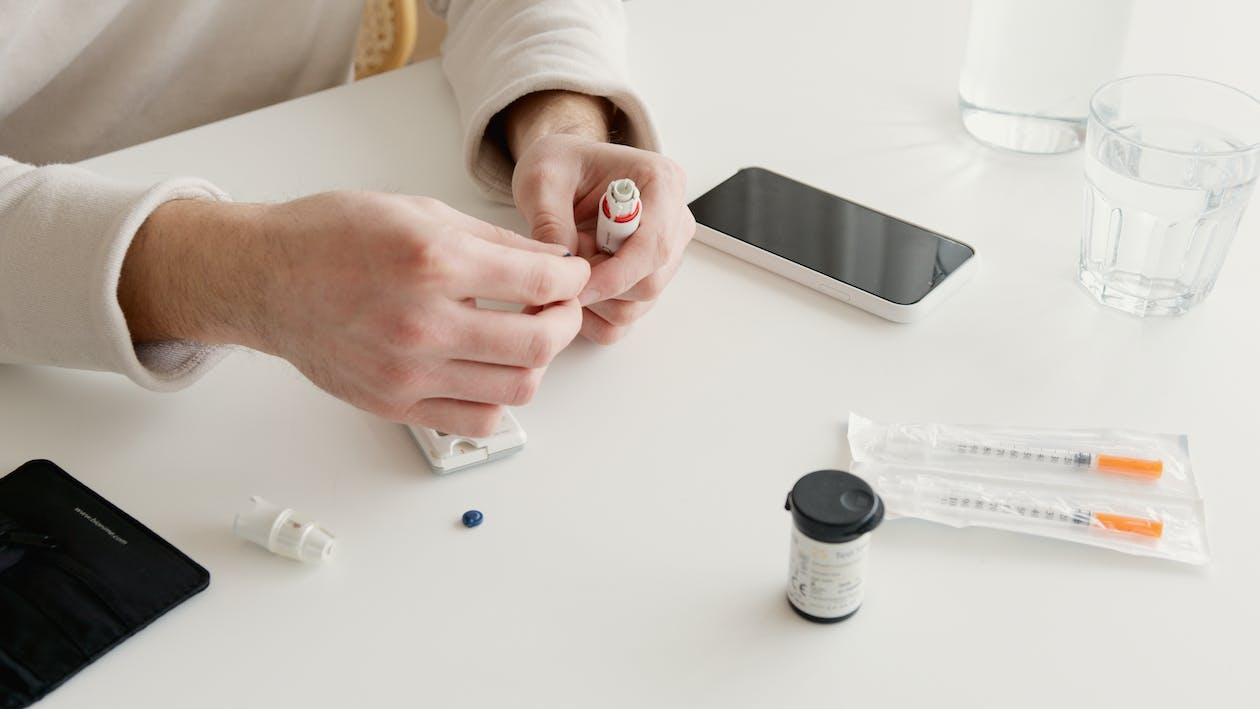Which is Worse Type 1 or 2 Diabetes
Which is Worse Type 1 or 2 Diabetes: Which is More Concerning
It's not accurate to say that one type of diabetes is inherently "worse" than the other, as which is worse type 1 or 2 diabetes has its unique challenges and potential complications. They are distinct conditions with different underlying causes:
Type 1 Diabetes
- Cause: Type 1 diabetes is an autoimmune condition in which the immune system mistakenly attacks and destroys the insulin-producing beta cells in the pancreas. The exact cause is not known, but it is thought to involve genetic and environmental factors. Read about How Often Does ADHD Co-Occur with Bipolar Disorder
- Treatment: People with Type 1 diabetes require insulin therapy for survival, typically administered through injections or an insulin pump. Diet and exercise management are also important.
- Challenges: Managing blood sugar levels can be more challenging in Type 1 diabetes, as there is little to no natural insulin production. This type often develops in childhood or adolescence and requires lifelong insulin dependence.
[caption id="" align="aligncenter" width="316"] insulin[/caption]
insulin[/caption]
Type 2 Diabetes
- Cause: Type 2 diabetes is primarily associated with insulin resistance, where the body's cells do not respond effectively to insulin. It often develops due to genetic, lifestyle, and environmental factors such as obesity and sedentary lifestyle.
Also read the Article: Can Allergies Cause Fever
- Treatment: Treatment for Type 2 diabetes may include lifestyle modifications (diet and exercise) and, in some cases, oral medications or insulin. Some people with Type 2 diabetes can manage their condition without insulin.
- Challenges: Type 2 diabetes is more common in adults and is often associated with other health conditions, such as heart disease and hypertension. Lifestyle changes can significantly impact the management of Type 2 diabetes.
Diabetes is a prevalent and potentially life-altering medical condition affecting millions worldwide. While there are various types of diabetes, the two most common ones are Type 1 and Type 2. Both types share similarities, such as elevated blood sugar levels, but they also have significant differences that can impact an individual's health differently. This article will explore the distinctions between Type 1 and Type 2 diabetes, helping you better understand which one may be considered "worse" based on different aspects.
Factors to Consider
https://www.youtube.com/watch?v=dB-vMe9p_Jw&pp=ygUjd2hpY2ggaXMgd29yc2UgdHlwZSAxIG9yIDIgZGlhYmV0ZXM%3D
Causes
Type 1 Diabetes
- Cause: Autoimmune reaction leading to the destruction of beta cells.
Type 2 Diabetes
- Cause: Often linked to obesity, genetics, and lifestyle factors like poor diet and physical inactivity.
Age of Onset
Type 1 Diabetes
- Age: Usually diagnosed at a younger age.
Type 2 Diabetes
- Age: Typically occurs in middle-aged or older individuals but is increasingly seen in younger people.
Treatment Approach
Type 1 Diabetes
- Treatment: Requires insulin therapy as the pancreas produces little to no insulin.
Type 2 Diabetes
- Treatment: Initially managed through lifestyle changes and oral medications, progressing to insulin therapy sometimes.
[caption id="" align="aligncenter" width="374"] Consulting[/caption]
Consulting[/caption]
4. Complications
Type 1 Diabetes
- Complications: Higher risk of diabetic ketoacidosis (DKA) and hypoglycemia.
Type 2 Diabetes
- Complications: Increased risk of heart disease, stroke, and complications like neuropathy and retinopathy.
Which is Worse?
Whether Type 1 or Type 2 diabetes is "worse" depends on various factors, including individual circumstances, preferences, and perspectives. Here's a simplified breakdown:
- Type 1 Diabetes: While it requires lifelong insulin therapy and poses acute risks like DKA, it often develops at a younger age, necessitating long-term management.
- Type 2 Diabetes is more common in adults and is often linked to lifestyle choices. It can lead to severe complications but can be effectively managed with lifestyle changes and medication.
In essence, neither type is inherently "worse" than the other; it's about how effectively they are managed and how they impact an individual's life.
Managing Diabetes
Whether it is worse type 1 or 2 diabetes, successful management is key to healthy living. Here are some essential steps to consider:
Monitoring Blood Sugar Levels
Frequent monitoring of your blood sugar levels is crucial. For Type 1 diabetics, this helps adjust insulin doses, while for Type 2 diabetics, it provides insights into the effectiveness of lifestyle changes and medications.
Healthy Eating
A well-balanced diet plays a vital role in diabetes management. Focus on consuming various nutrient-dense foods, controlling portion sizes, and monitoring carbohydrate intake. For Type 2 diabetics, weight management through a healthy diet can often reduce the need for medication.
Regular Physical Activity
Exercise can help improve insulin sensitivity, lower blood sugar levels, and promote overall health. Aim for at least 150 minutes of moderate-intensity weekly aerobic activity and strength training exercises.
Medications and Insulin
Type 1 diabetics require insulin therapy, which may involve multiple daily injections or an insulin pump. Type 2 diabetics may also need medication; sometimes, insulin may be prescribed.
Regular Check-ups
Regular visits to your healthcare provider are essential. They can monitor your diabetes management, perform necessary tests, and adjust your treatment plan.
Lifestyle Modifications
Both types of diabetes can benefit from lifestyle changes such as quitting smoking, managing stress, and getting adequate sleep. These factors can have a significant impact on blood sugar control.
Living with Diabetes
Living with diabetes can present challenges, but with the right approach, it's possible to maintain a fulfilling life:
Education
Understanding your condition is empowering. Learn as much as you can about diabetes, including how to manage it effectively. Diabetes education programs are available to provide guidance.
Support System
Having a support system can make a significant difference. Share your journey with family and friends who can offer encouragement and help you stay on track.
Mental Health
Diabetes can be emotionally challenging. Managing the condition can sometimes lead to stress and anxiety. Don't hesitate to seek the help of a mental health professional if needed.
Traveling and Diabetes
If you love to travel, diabetes should not hold you back. Plan by packing extra supplies, knowing local medical resources, and keeping your medications and medical ID handy.
Dietary Choices
Eating out can be a part of life, even with diabetes. Choose restaurants with healthy options, read menus carefully, and don't be afraid to ask for modifications to suit your dietary needs.
Celebrating Special Occasions
You can still enjoy special occasions and holidays while managing diabetes. Be mindful of portion sizes and try to balance indulgence with healthier choices.
In conclusion, the question of which is worse type 1 or 2 diabetes is worse is a complex one. Both types present unique challenges and require careful management. However, with proper education, support, and a proactive approach to self-care, individuals with diabetes can lead healthy, fulfilling lives.
Conclusion
Diabetes, whether which is worse type 1 or 2 diabetes, is a significant health concern that requires careful management. It's essential to focus on prevention, early diagnosis, and adopting a healthy lifestyle to minimize the risks associated with both types of diabetes. Remember that a proactive approach to managing diabetes can significantly improve one's quality of life.
FAQs
.Can Type 2 diabetes turn into Type 1?
No, Type 2 diabetes cannot turn into Type 1. They are distinct conditions with different causes.
.Is one type of diabetes more common than the other?
Yes, Type 2 diabetes is more common and accounts for most diabetes cases worldwide.
.Can you prevent Type 1 diabetes?
Type 1 diabetes cannot be prevented as it is an autoimmune disease with no known cause.
.Which type of diabetes is more hereditary?
Both types have a genetic component, but Type 2 diabetes has a more vital link to family history.
.Is it possible to live a healthy and fulfilling life with diabetes?
With proper management, individuals with diabetes can lead healthy and fulfilling lives.


